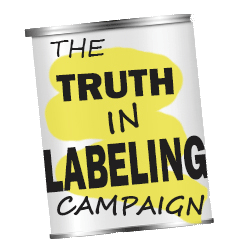Somewhere in the millions of mystery stories that have been written, you’ll come across the words “If you want to catch a criminal you have to learn to think like a criminal,” which would be good advice for dealing with certain people in the glutamate industry.
I thought of those words when I read a post about the dangers of MSG that didn’t sit quite right with me, and I thought of them again when a new webpage surfaced. It would be a perfect ploy for the “Glutes” to set up people as anti-MSG activists, get them quite a bit of publicity, and, when needed, have those people “blow the whistle” and declare that that they had been mistaken when they wrote or spoke of the dangers of MSG.
That would be similar to quoting words taken out of context and using that to smear the writer. Directors of the Truth in Labeling Campaign have, in the past, been set-up for that purpose.
A bit different but clearly designed for the same purpose would have been the scheme to discredit the work of Dr. David Allen. In setting up the fail-safe agenda of the glutamate industry for the glutamate industry, the FDA had referred to the research of Dr. David Allen which identified 3.0 grams MSG as an asthma trigger.
Once the 3-gram figure had been established as the amount that would cause an MSG reaction, the research reported by David Allen would be discredited – just in case someone should later refer to the fact that Allen had also found that .5 grams of MSG could also cause a reaction. The work of discrediting Dr. Allen was left to Drs. Simon and Stevenson or Scripps Clinic, LaJolla, California.
Setting up someone as an anti-MSG activist ready to “blow the whistle” could certainly be in the works, and it would not surprise me. The campaigns, propaganda, clear-cut lies and media exploits I’ve already seen lead me to believe that at this point, anything is possible.
If you have questions or comments, we’d love to hear from you. If you have hints for others on how to avoid exposure to MfG, send them along, too, and we’ll put them up on Facebook. Or you can reach us at questionsaboutmsg@gmail.com and follow us on Twitter @truthlabeling.
Resources
It Wasn’t Alzheimer’s, It Was MSG. (2013) A. Samuels. Pp 47-50; Pp103-106; Chapters 6 and 9. https://www.truthinlabeling.org/assets/it_wasnt_az.pdf


